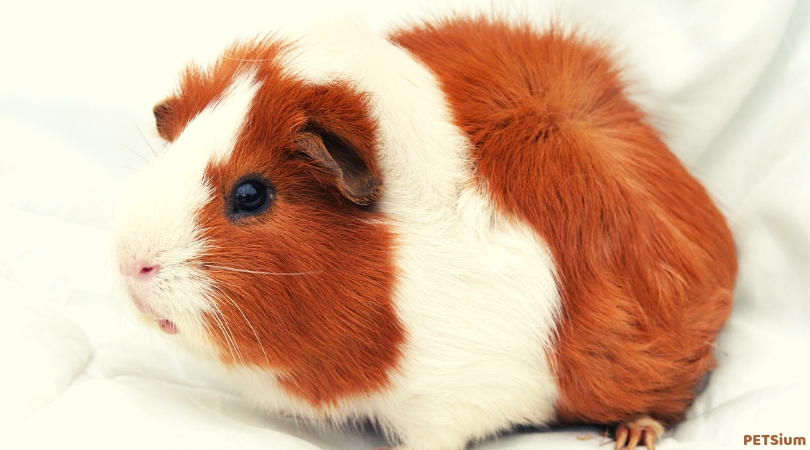As cute, cuddly and easily manageable as they are, there are many important Guinea Pig facts out there that every pet owner should pay attention to in order to secure a happy and healthy life for their Guinea Pig.
Post Navigation
What Are Guinea Pigs?
A Guinea Pig is also known as a Cavy.
These creatures belong to the family of rodents and alongside hamsters, are a very popular household pet.
Because of their gentle demeanor and compact size, they are the perfect addition to any home, even those with young children.
Guinea Pigs are said to originate from the Andes in South America and were domesticated and raised for food by the local tribes.
Although they were originally introduced to the conventional pet market as exotic pets, Guinea Pigs can be found in homes all across the globe today.
Unlike other rodents, Guinea Pigs are fully domesticated and no matter how hard you search, cannot be found in the wild.
What Are Some Important Guinea Pig Facts To Know?
Like all other household pets, there are certain things that you should know before welcoming a Guinea Pig into your family.
Although they are generally easy to maintain and to keep as pets, here are some things that you should take note of as a responsible pet owner.
Guinea Pigs Lifespan and Size
Cavies can live up to eight years, with the average lifespan being six or so odd years.
However like any living creature, your Cavy lifespan is directly linked to how well you look after it.
Factors such as diet, habitat, and care play very important roles in determining how long a Guinea Pig will live for.
Interestingly, the longest recorded lifespan for a guinea pig is 15 years.
As this is extremely rare, do no get your hopes up too high and expect your pet to live for a decade and a half.

However judging from its small size, Guinea Pigs have a relatively long lifespan as compared to fellow rodents like hamsters, mice and rats.
When it comes to the average size, Cavies weigh between 700 to 1200 grams and measure up to 25 centimeters in length.
These little creatures are a perfect fit for pet owners who live in apartments and small spaces.
Physical Traits of Guinea Pig
Generally, Guinea Pigs come in a wide array of colors. From brown to black to white, you will be spoilt for choice when choosing the perfect Cavy to bring home.
Not only that, you have to decide if you want a Cavy with long, short, straight or curly fur.
When sourcing for a Guinea Pig, there are four categories to look out for. They are smooth-coated breeds, long-coated breeds, rough-coated breeds and hairless breeds.
A popular breed is the American Short Coat whereas the Skinny Pig is a rare breed and you will probably have to contact a breeder to get your hands on one.
Guinea Pig Dietary Needs
A cavy diet plays a very important role in determining how long it will live. You have to feed your pet a diet that is rich in phosphorus, calcium, potassium, magnesium and vitamins A, C, D and E.
These little creatures are herbivores so they will thrive on a diet that comprises of high quality pellets, grass hay, organic vegetables and fruits.
They love carrots, kale, apples, salad greens, red and yellow bell peppers, fresh parsley, pears, corn on the cob and seedless grapes.
Although most vegetables are fine for Guinea Pigs, stick to dark leafy greens to be safe.
Try not to feed your Cavy cabbage as it is a gassy vegetable and can cause your pet to feel bloated and gassy when fed in large quantities.
The golden rule is to feed your Cavy everything in moderation and it will be just fine. Also remember to remove the seeds from fresh fruits before treating your Cavy to them.

Guinea Pigs Social Characteristics
Like rabbits and other rodents, Guinea Pigs are very social creatures. Remember to raise a minimum of two at a time to avoid depression and loneliness.
Because they are gentle creatures that exhibit mild behavioral characteristics, they are a perfect fit for families with kids.
However, you have to remember not to stress your Cavy out and children should always be cautious when lifting or playing with the Cavy.
They are sensitive to loud noises so children have to be reminded to be gentle around these creatures.
Remember that pet stores may make a mistake when determining the gender of the Guinea Pig so in order to avoid having to deal with an unwanted litter of pups, get both Guinea Pigs spayed or neutered before bringing them home.
Do not worry about altering their personalities as this will not affect them in any way.
Most Cavies get along with one another, regardless of whether they are of the same sex, but you have to be prepared for the unexpected.
There have been cases where Guinea Pigs raised together from pups may not get along in the future, especially after they go through adolescence.
Guinea Pigs Habits
Guinea Pigs love social situations and will interact with those around them.
Whether it is a human, dog, cat or other Guinea Pig that it has grown up with, it is not uncommon for plenty of bonding and playing to happen.
Like cats, Guinea Pigs show affection and happiness through purring. They also love stretching out when they feel relaxed and at ease.
Another thing to note is that when given the chance, Guinea Pigs can eat all day long, just like pandas.
They even get worked up and competitive when it comes to meal times so if you have two or more Cavies, ensure that each creature is getting enough nutrition and that the dominant one is not monopolizing the food supply.
Another habit of Cavies is that they do not sleep for long periods at a time the way humans do. Instead, they prefer to take multiple short naps throughout the day.

Guinea Pig Habitat
These mild mannered animals prefer in-between climates. Nothing too hot or too cold is ideal for the Guinea Pig so it is best to keep your Cavy indoors.
Generally, if you feel comfortable with the temperature, your Cavy probably will too.
As Guinea Pigs do not adjust well to drastic temperature changes and are prone to heat and sun strokes, do not place its cage with access to direct sunlight.
You should also ensure that your Cavy space is not in the way of drafts and wind as they tend to catch respiratory infections easily.
Besides the temperature, you should pay attention to the space of your Cavy cage.
Like all other animals, they need space to grow and thrive.
Cramped quarters are a big no-no so prepare and maintain at least 10 square feet of living space for two Cavies.
If you plan to own just one Cavy for the time being, something a little smaller is fine too but remember that the more space your pet has, the more exercise it will get in order to stay healthy.
Cages with solid mesh wire floors are a common choice as they offer great airflow and are easy to clean.
Line the cage with wood chips so that your Guinea Pig will not hurt itself when running back and forth.
If you are able to, install ramps and platforms so that your Guinea Pig will not get bored with its environment.
The introduction of toys and other equipment will stimulate your pet to exercise and play, building a strong base for a long and happy life.
Common Diseases of Guinea Pigs
Besides respiratory infections, a common ailment amongst Guinea Pigs is Bumblefoot.
This is an inflammatory infection that affects the feet of rodents who live in cages that have not been cleaned for a significant amount of time.
The only way to avoid this from happening is to clean your pet’s cage frequently.
You can also opt to wipe its feet every few days with a wet cloth to get rid of the grime, feces and urine that will inevitably get stuck to the bottom of its feet.
You have to remember that a clean living environment is key to a happy pet so ensure that do all that you can to offer it the best life possible.





Leave a Reply